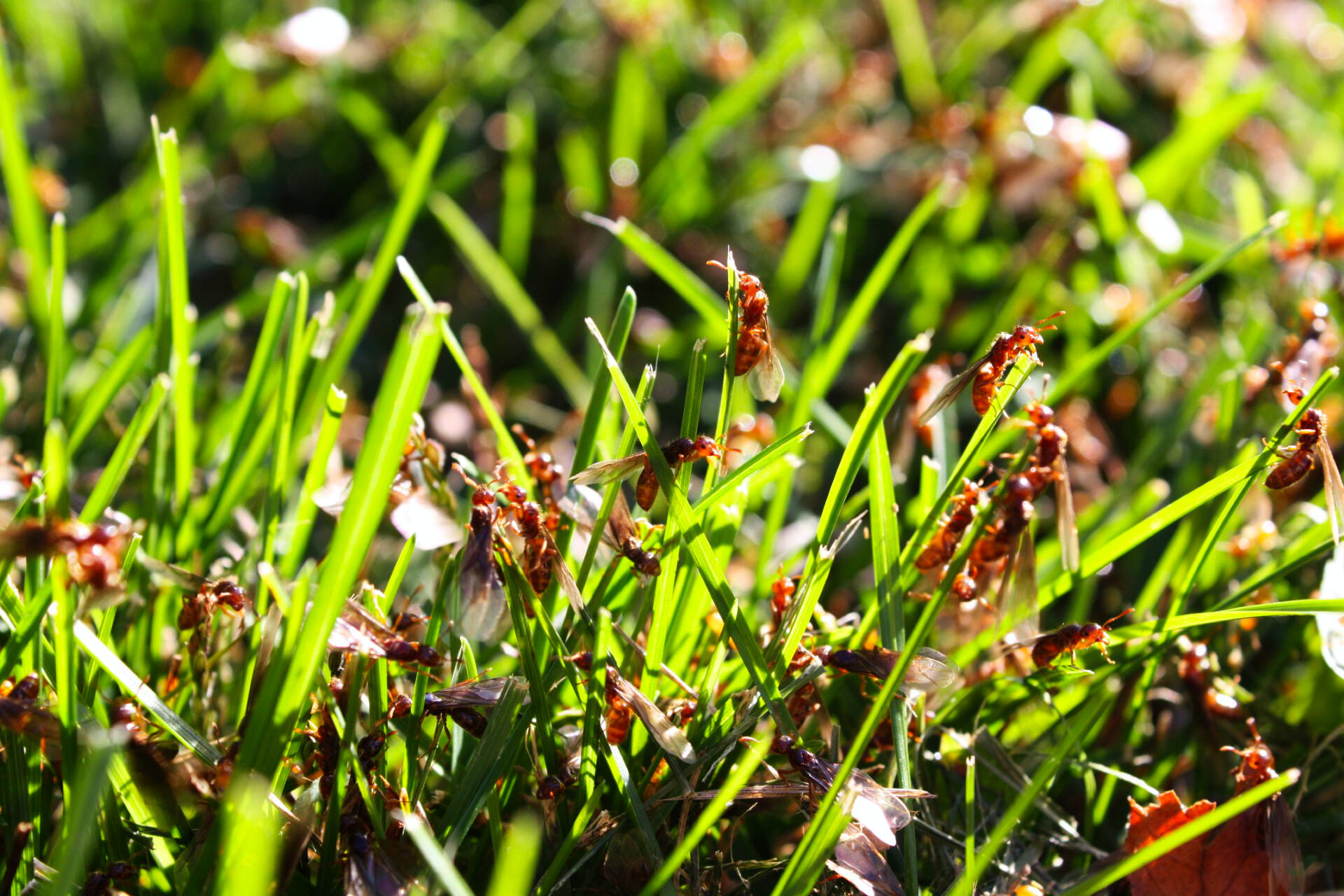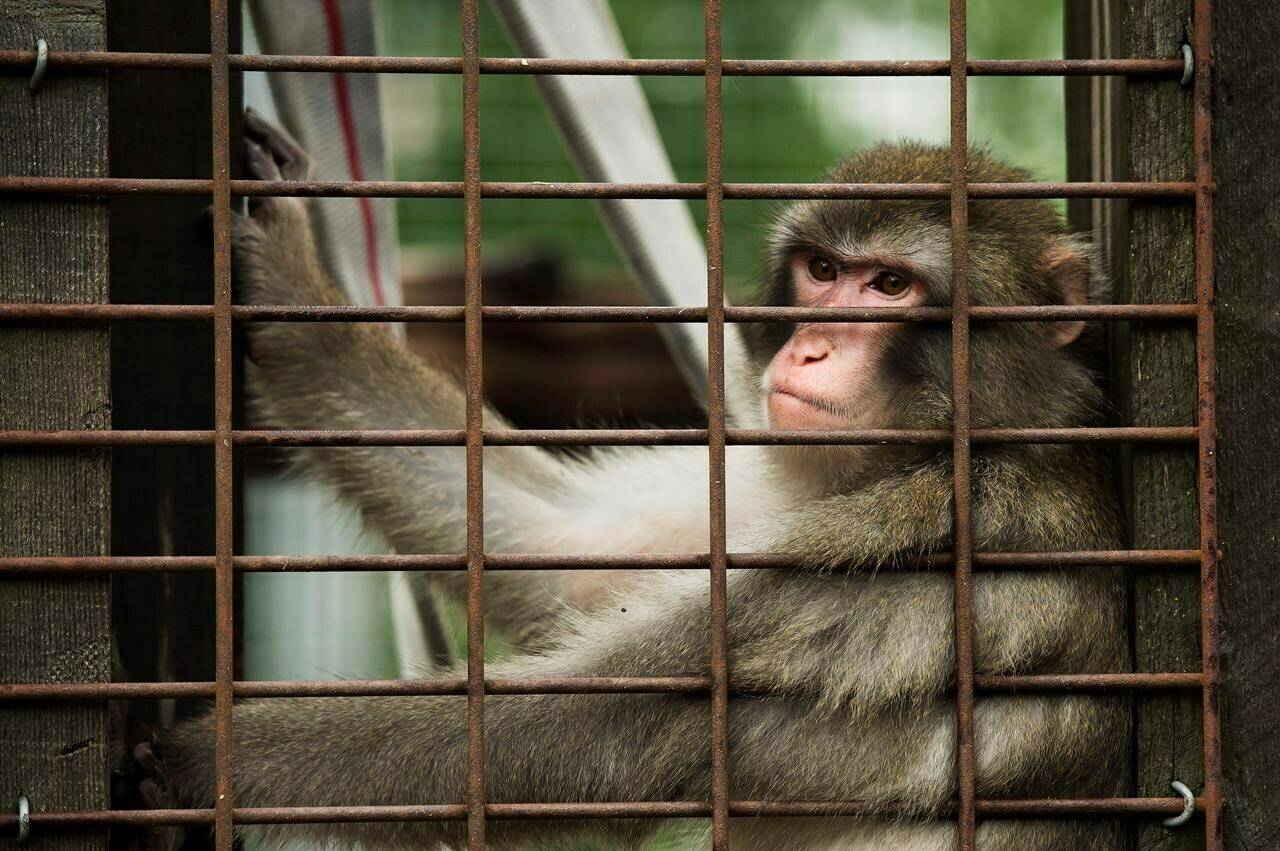On the evening of Aug. 27, many Comox Valley residents watched tens of thousands of winged ants crawling and clumsily flying everywhere.
Those that did should consider themselves lucky, because they’ve had the privilege to witness one of nature’s most impressive displays of love: the ephemeral annual nuptial flight of ants.
While this event may be mildly annoying for some, and a source of disgust for others, this event is perfectly normal, harmless, and plays a crucial role in our ecosystem. Entomologist and post-doctoral researcher Aaron Fairweather assures that this three-hour-long ritual is all about love.
“Every year, each species of ant has its own specific time when (winged female and male ants) will fly from their respective colony, in a specific area, all at once, to mate and establish new colonies,” says Fairweather.
This phenomenon is not confined solely to Vancouver Island; it’s a global event experienced by most of Earth’s 14,000 ant species once a year.
Though Fairweather admits that knowledge surrounding these critters in B.C. is “fairly poor,” he estimates that upwards of 150 different kinds of ants are attending this large-scale honeymoon, ranging from spring to late fall.
Among those are the cornfield, sugar, odour, pavement, black garden, and carpenter ants, to name a few.
To this day, science has yet to explain how millions of these small insects emerge in perfect synchronization from their residence.
However, many entomologists agree on common hypotheses as to why this happens.
“We think it has a lot to do with the temperature, how warm it is, the weather, and especially UV exposure,” says Fairweather. “I’ve noticed, as a researcher, that it usually (happens) at dusk, right before or after a thunderstorm.”
Coincidentally, this year’s nuptial flight occurred on the eve of one of the very few thunderstorms the region had amidst this exceptionally dry summer.
Preparing for the ball
A week or two before these insects take their area by storm, queens from every colony start to produce alates – winged male (drones) and female (princesses) ants – whose sole purpose is to reproduce.
When the time comes, millions of alates simultaneously crawl out of their respective mounds and start to mingle with their neighbours.
After a few hours, once the females are fertilized, they chew off their wings and the search for a new home to establish their underground colony begins.
Males, however, face a grimmer reality.
“The function of the male is really just to give their gametes and then they die,” says Fairweather. “They mate and as soon as they’ve shot their shot, they die instantly.”
Despite their short-lived existence, Fairweather emphasizes how critical the role of males is in this yearly event.
“Queens have this amazing biological ability to store sperm for their whole life, and some species live up to 80 years,” explains Fairweather. “Once a queen is fertilized, she then constantly produces millions of workers for the rest of her life, and it’s all from this one fertilization event.”
Why swarming?
This unique behaviour, exhibited by many animals and insects, often plays an important role. In the case of ants, swarming serves as an efficient survival tactic and contributes to the maintenance of robust genetic health.
“There is safety in numbers and swarming increases their chance of mating,” says Fairweather. “If you have millions and millions of these queens, then you’re more likely to have some of them establish themselves. In the end, you might only have one to five per cent of those queens survive to the next year.
“(Swarming also allows ants) to mate with a colony that is genetically distinct from them and prevent inbreeding. For that to happen, you need a lot of numbers.”
Beyond just playing a role in the reproduction of ants, this nuptial flight represents a crucial source of food for a variety of different animals including birds and small mammals.
Ants mean friends
As mentioned before, Fairweather repeats that this short-lived event is harmless for humans.
Supporting this claim is Steve Jackson, co-owner of Pacific Coastal Pest Control.
“It’s a standard thing that happens every year,” mentions Jackson. “From a pest control point of view, I think it’s just an average season so far.”
A nuptial flight does not result in higher rates of residential ant infestations. According to the entomologist, most ant species see no reason to establish a colony within a house, as it separates them from their primary food source, which is typically found in the wild.
As for the infamous carpenter ant, this species means no harm contrary to popular belief.
“Carpenter ants often get a bad rap for eating the wood in people’s homes,” said Fairweather. “But these ants can’t eat wood. They don’t have the same bacteria in their gut as termites do. They feed on wood rot. If you happen to have a rotting beam in your house, you might have carpenter ants. But it’s not the ants that are destroying your house, it’s the rot.”
According to Fairweather, ants play an essential role in the environment by controlling numerous parasite populations and aerating soils worldwide.
“Ants are a very beneficial predator,” they said. “They are feeding on a whole bunch of different pest beetle species and caterpillars. Ants also move more soil in general than even earthworms do. So they cycle on a lot of nutrients and aerate the ground.”
All in all, the entomologist mentions that there is nothing to be scared of. Most of the time, this event unfolds when most are indoors and unaware.
However, if you had a chance to gaze at this yearly event, you have witnessed true love in the air… literally.
RELATED: B.C. biologists standing up for at-risk slugs and bugs

